 ¿Qué hora es?
¿Qué hora es?
Look at the clocks and learn how to express time in Spanish.
| ¿Qué hora es? |
¿Qué hora es? |
¿Qué hora es? |
¿Qué hora es? |
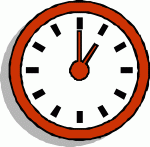 |
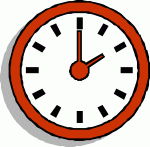 |
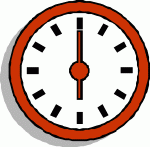 |
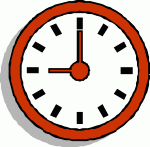 |
| Es la una. |
Son las dos. |
Son las seis. |
Son las nueve. |
You will want to know a few other words when telling time.
| Escucha: | Respuesta: | ||
| Escucha: | Respuesta: | ||
| Escucha: | Respuesta: | ||
| Escucha: | Respuesta: | ||
| Escucha: | Respuesta: | ||
| Escucha: | Respuesta: | ||
| Escucha: | Respuesta: | ||
| Escucha: | Respuesta: |
You can either say "es mediodía" or "son las doce"; "es medianoche" or "son las doce". "Mediodía" and "medianoche" are the words for "noon" and "midnight".
In Spanish, they do not say "7:00 PM" or "10:00 AM". They have different expressions that express AM and PM:
| ¿Qué hora es? |
¿Qué hora es? |
¿Qué hora es? |
¿Qué hora es? |
 |
 |
 |
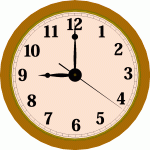 |
| Son las diez de la mañana. | Son las tres de la tarde. | Son las once de la noche. | Son las nueve en punto. |
| (in the morning) |
(in the afternoon) |
(at night) |
(sharp, exactly) |

